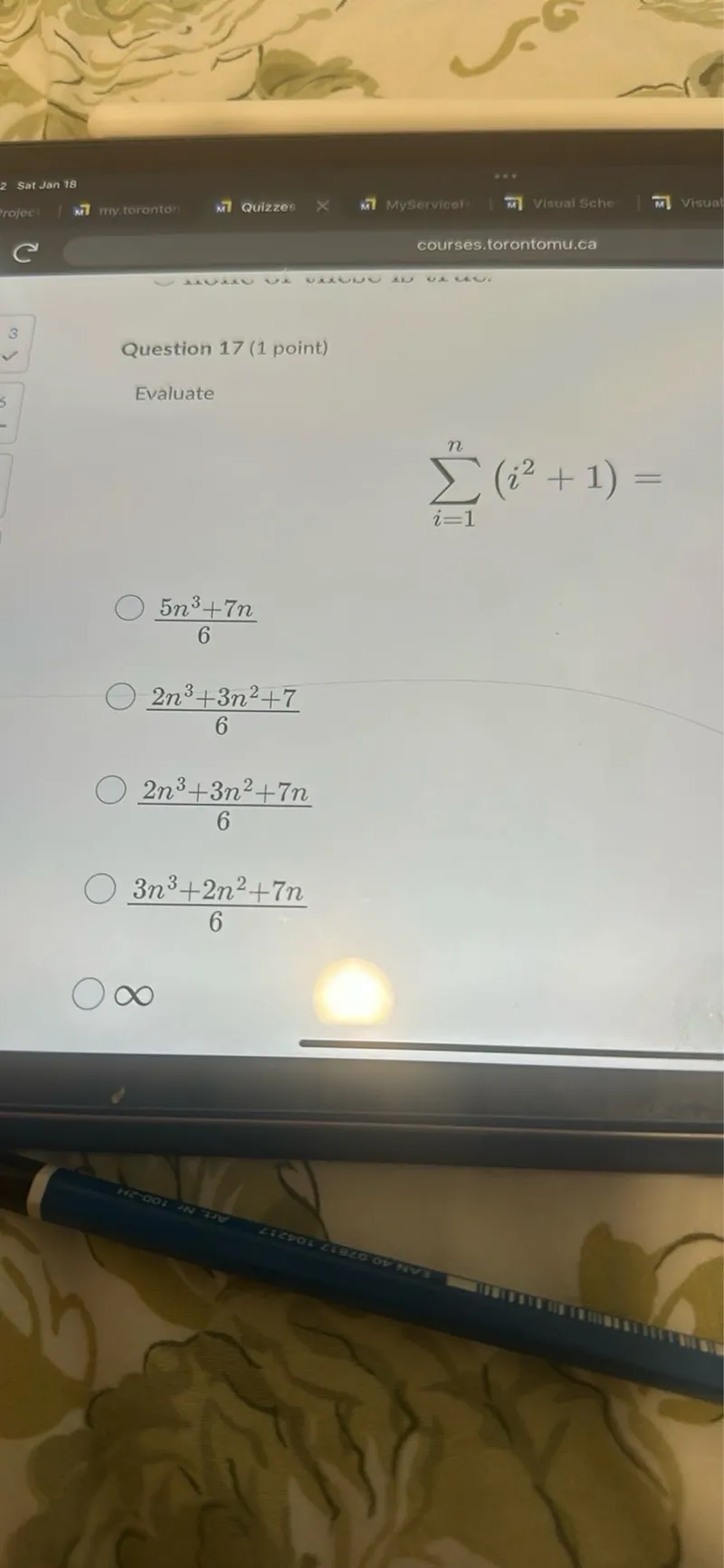Questions: Question 17 (1 point) Evaluate the sum from i=1 to n of (i^2 + 1) = - 5n^3 + 7n / 6 - 2n^3 + 3n^2 + 7 / 6 - 2n^3 + 3n^2 + 7n / 6 - 3n^3 + 2n^2 + 7n / 6 - Infinity

Transcript text: Question 17 (1 point)
Evaluate
\[
\sum_{i=1}^{n}\left(i^{2}+1\right)=
\]
$\frac{5 n^{3}+7 n}{6}$
$\frac{2 n^{3}+3 n^{2}+7}{6}$
$\frac{2 n^{3}+3 n^{2}+7 n}{6}$
$\frac{3 n^{3}+2 n^{2}+7 n}{6}$
$\infty$





